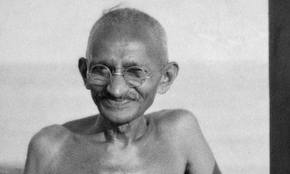
Gurgaon, July 12: Mahatma Gandhi was never formally conferred the title of Father of the Nation by the government.
This was stated by the Home Ministry in reply to an RTI query.
"Although Mahatma Gandhi is popularly known as Father of the Nation, no such title was ever formally conferred upon him by the government," Shyamala Mohan, Director and Central Public Information Officer (CPIO), said in a reply dated June 18 this year.
The query was filed by social activist Abhishek Kadyan with the Home Ministry on May 21, 2012 seeking information about declaration of Mahatma Gandhi as Father of the Nation.Abhishek Kadyan is an advisor to Italy based animal rights NGO OIPA. Earlier, Aishwarya Parashar, a Class-VI student from Lucknow, had filed a similar query through the Right to Information (RTI) Act seeking a photocopy of the order through which Mahatma Gandhi was declared as Father of the Nation and was informed that there were no specific documents on the information sought.
In February, she had sent the RTI application to the central public information officer of Prime Minister's Office.
From the PMO, the application was forwarded to Ministry of Home Affairs. The MHA, however, stating that it does not comes under its purview forwarded the application to the National Archives of India.
The NAI in its reply sent to Aishwarya had said: "As per the search among the public records in the NAI there is no specific documents on the information being sought by you."





Comments
Add new comment